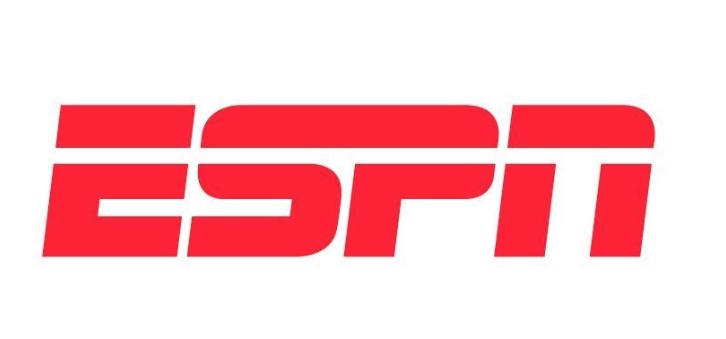Ad Disclosure
ESPN Chose Idiocy
By Kyle Scott
Published:

 This post is brought to you with limited advertising and no surveys by TalentFleX Solutions. TalentFleX Solutions is a full service business consulting firm offering contingent, contract and project based professionals in the Information Technology, Data Analytics, Finance & Accounting and Healthcare fields. Our model provides for flexibility in hiring needs from project, to contract to permanent placement. Our consultants have extensive experience in attracting, screening, and placing the very best in technical talent for our clients. For more information, please visit www.talentflexsolutions.com or email info@talentflexsolutions.com. Follow us on LinkedIn and Twitter for updates.
This post is brought to you with limited advertising and no surveys by TalentFleX Solutions. TalentFleX Solutions is a full service business consulting firm offering contingent, contract and project based professionals in the Information Technology, Data Analytics, Finance & Accounting and Healthcare fields. Our model provides for flexibility in hiring needs from project, to contract to permanent placement. Our consultants have extensive experience in attracting, screening, and placing the very best in technical talent for our clients. For more information, please visit www.talentflexsolutions.com or email info@talentflexsolutions.com. Follow us on LinkedIn and Twitter for updates.
First, a primer on what the hell happened yesterday: ESPN laid off GOBS of on-air and other public-facing “talent” and writers. Many good or popular ones: Jayson Stark, Ed Werder, Dana O’Neil, Jade McCarthy, Andy Katz, Pierre LeBrun and many, many others.
Contrary to what idiots may think, the layoffs are not due to ESPN’s ostensible political agenda (even if SC6 is unwatchable) or because they talked too much about Deflategate. Many people lost their jobs yesterday because ESPN is trying to cut costs while their revenue – which is generated mainly by the roughly $7 fee most cable subscribers pay to them (wittingly or otherwise) and advertising – decreases. ESPN pays an obscene amount of money to sports leagues and conferences, particularly the NFL and NBA, to broadcast their games. For years, they were able to do this because they had a never-ending, steady stream of cash from virtually every cable subscriber in America, and because shows like SportsCenter were indispensable and commanded premium ad buys.
Ben Thompson of Stratchery explains it well:
This is exactly what has happened to ESPN, and, by extension, explains what is happening with these layoffs. For three decades ESPN didn’t really have to worry about running a business: carriage fees were up-and-to-the-right, its low-cost studio shows like Sports Center commanded relatively strong ratings, and it had plenty of sports at prices that were much-to-low relative to the value they provided ESPN. That meant that ESPN would afford to spend all kinds of money in businesses that had very little connection to the bottom line, whether that be relatively obscure sports, team-specific reporters, or ESPN.com.
However, the aforementioned assault on the pillars of ESPN profitability has laid bare the cost of this largesse: the fact of the matter is that there are a huge number of ESPN employees that contribute nothing to the bottom line. By extension, what is driving these layoffs is clearly a calculation around bottom-line profitability. That is, with this decision, ESPN is being run like a business, not a franchise.
So ESPN let go of many of its talented reporters.
Thompson concludes that ESPN will ultimately be fine. His argument is that because they bought in early on being a part of streaming bundles, and so long as they continue to get valuable broadcast rights, they will remain a must-have product for sports fans, regardless of whether they’re available through a cable subscription, streaming bundle subscription, or even direct subscription. I don’t fully disagree with him, and ESPN’s reasoning for getting rid of low-value, sometimes expensive reporters makes financial sense.
But that’s assuming ESPN will continue to win sports rights deals and maintain some semblance of quality in their non-live sports offerings. The problem with this notion is that ESPN will have to raise subscriber fees to compensate for cord cutters who will seek out services that don’t force them to pay for sports programming or any programming that they don’t want. And so that leads to some calculus on the part of people who do want ESPN. How much am I willing to pay for this? $7 per month? $10? $20? The more expensive it gets, the more who will decide that they don’t need it.
Previously, ESPN’s non-live offerings, like SportsCenter, were must-watch TV. We liked them. And even if we didn’t, ESPN had the power to force them down our throats because they represented one of the few options for around-the-clock sports programming. Neither thing is true anymore. Save for 30 for 30 and a handful of other quality productions from ESPN, most people hate SportsCenter and other studio shows (at worst) or just tolerate them (at best). What sort of morons actually think to themselves, “I NEED to see what Stephen A. Smith and this dumb jock have to say about the game?”
One thing we, as sports fans, do appreciate is true talent and quality reporting (and it doesn’t have to be stuffy or serious). I’m fully aware that stuff doesn’t always pay the bills, but what ESPN did yesterday was cut much of their quality, niche reporting in favor of the oversized, overpressed, flashy suits, dumb jocks and talking heads who are OK with selling their soul and happily fostering debate about absolute nonsense. This is precisely the thing people can’t stand about ESPN. If they have any ambitions of continuing to make advertising revenue a substantial portion of their business, it seems to me a better strategy would’ve been to cut fewer of the high-paid talking heads (most of these guys make way more than the niche reporters ESPN laid off), save as much if not more money in the process, and double-down on quality. If ESPN can generate ratings and ad revenue with most of the shit they have on now, imagine if some of that stuff was actually… good. Sure, studio debate shows are cheap and easy, but they are not factoring into that “should I buy it?” decision consumers will increasingly get to make. The broadcast rights will, but First Take will not. Now, what if ESPN went with the less is more tactic and produced more quality, must-watch programming like 30 for 30 – whether it be documentaries, behind-the-scenes Hard Knocks type shows, or, yes, even movies – leveraging the talents and knowledge of the reporters they let go? The decision to forgo ESPN would be that much harder for consumers. And even though total viewership might be lower, ESPN would capture more attention (which is increasingly important in media) and could sell premium sponsorship off of it (sort of like I’m doing with this post).
Maybe that’s all a bit of a fantasy. ESPN is a business and they determined that what they did yesterday, and will continue to do on TV, is what is best for them. Fine. But I’ve never been a believer in the notion that getting rid of quality and talent is the path to success. In fact, if you run a business and are in search of talent, may I present to you…
Oh I’m good.
To see your ad here, contact advertising@crossingbroad.com.
Kyle Scott is the founder and editor of CrossingBroad.com. He has written for CBS Philly and Philly Voice, and been a panelist or contributor on NBC Sports Philly, FOX 29 and SNY TV, as well as a recurring guest on 97.5 The Fanatic, 94 WIP, 106.7 The Fan and other stations. He has more than 10 years experience running digital media properties and in online advertising and marketing.
